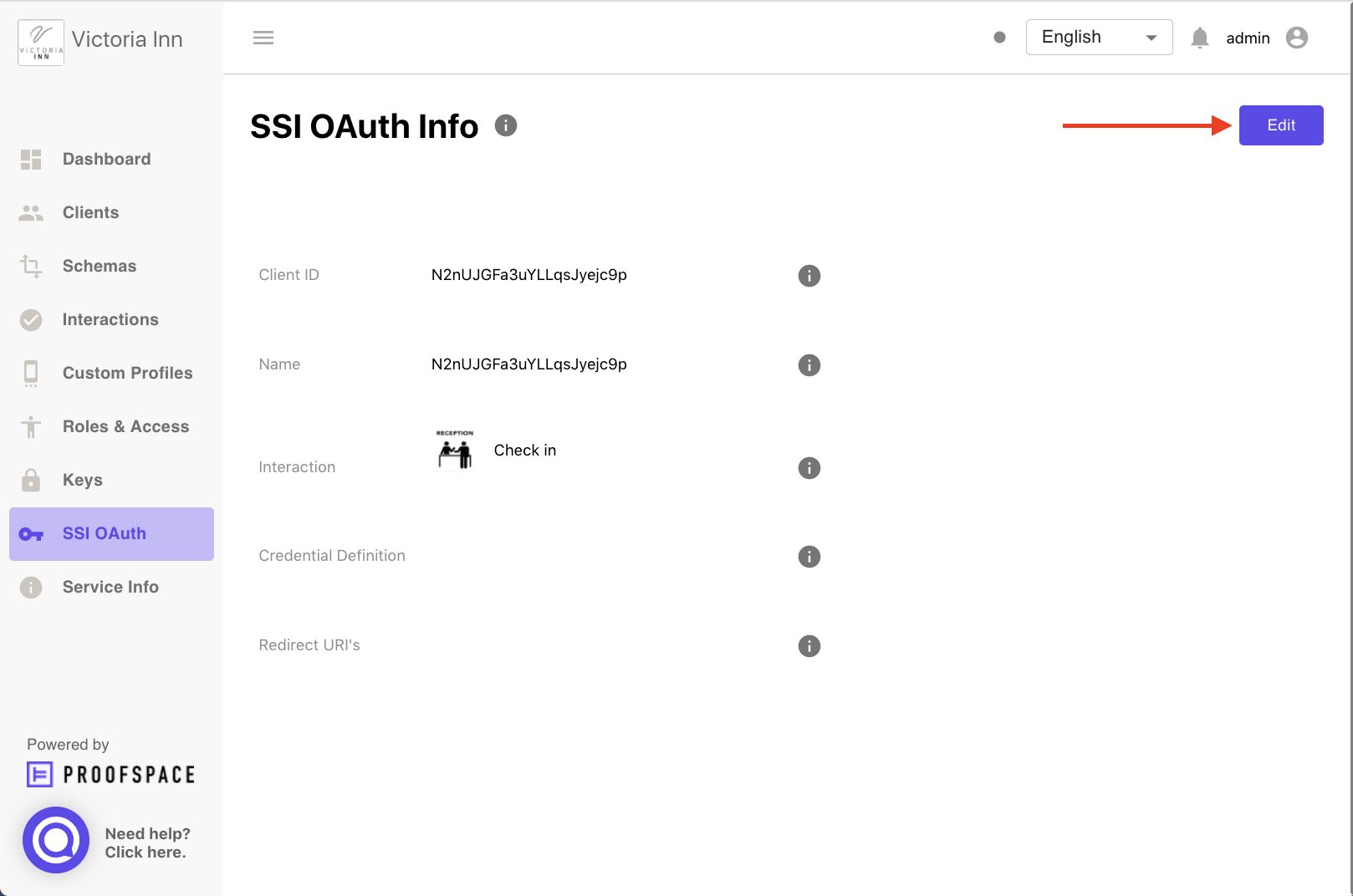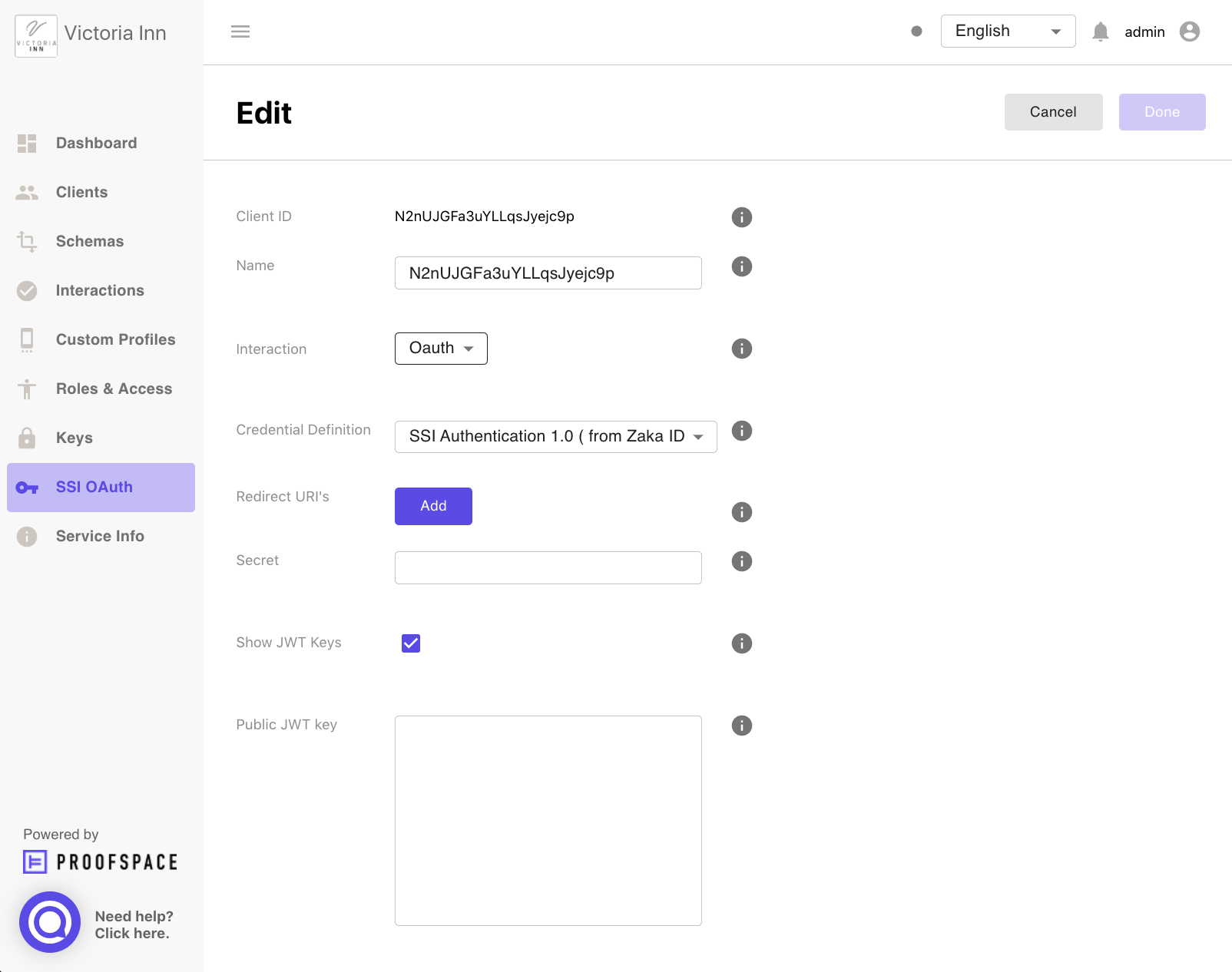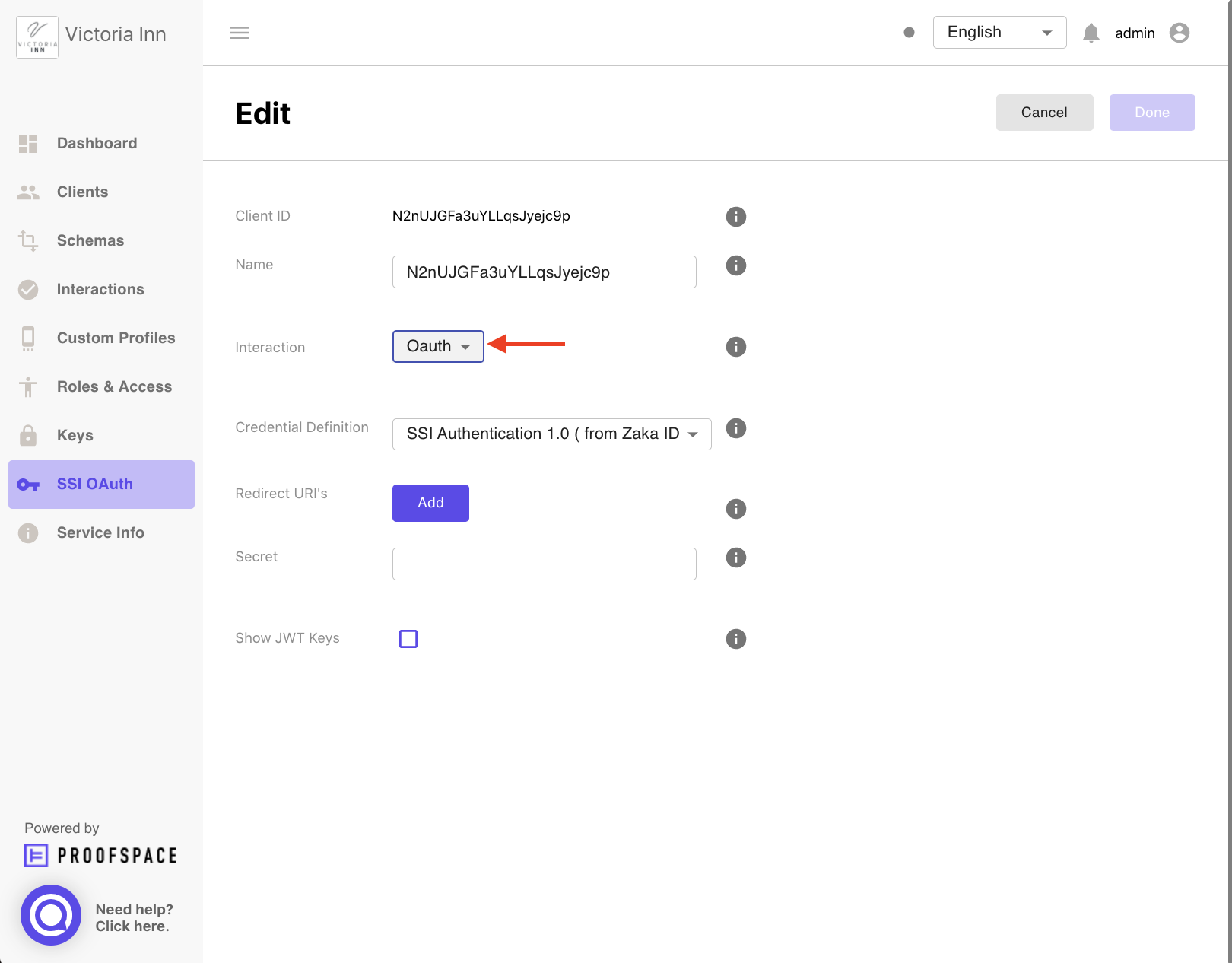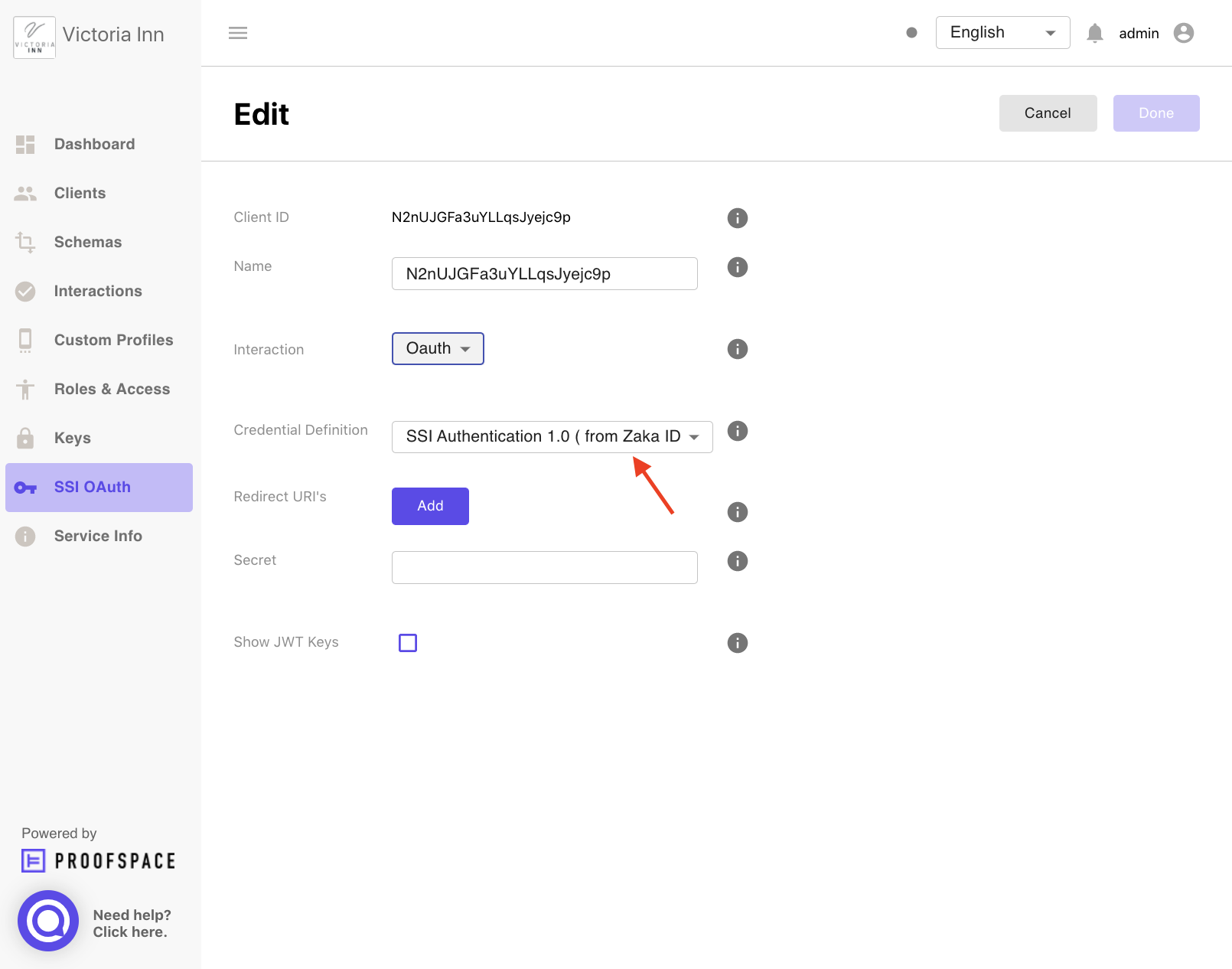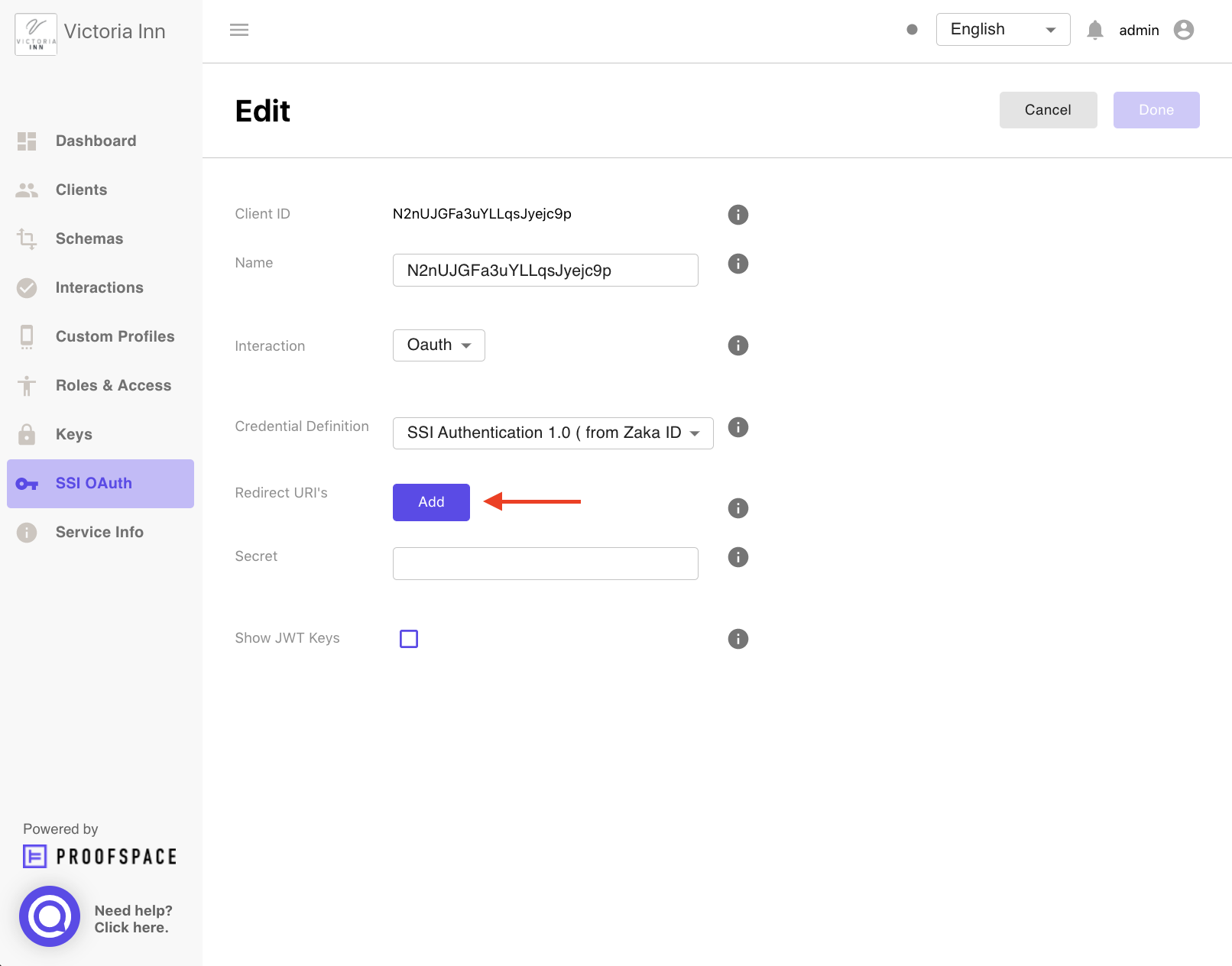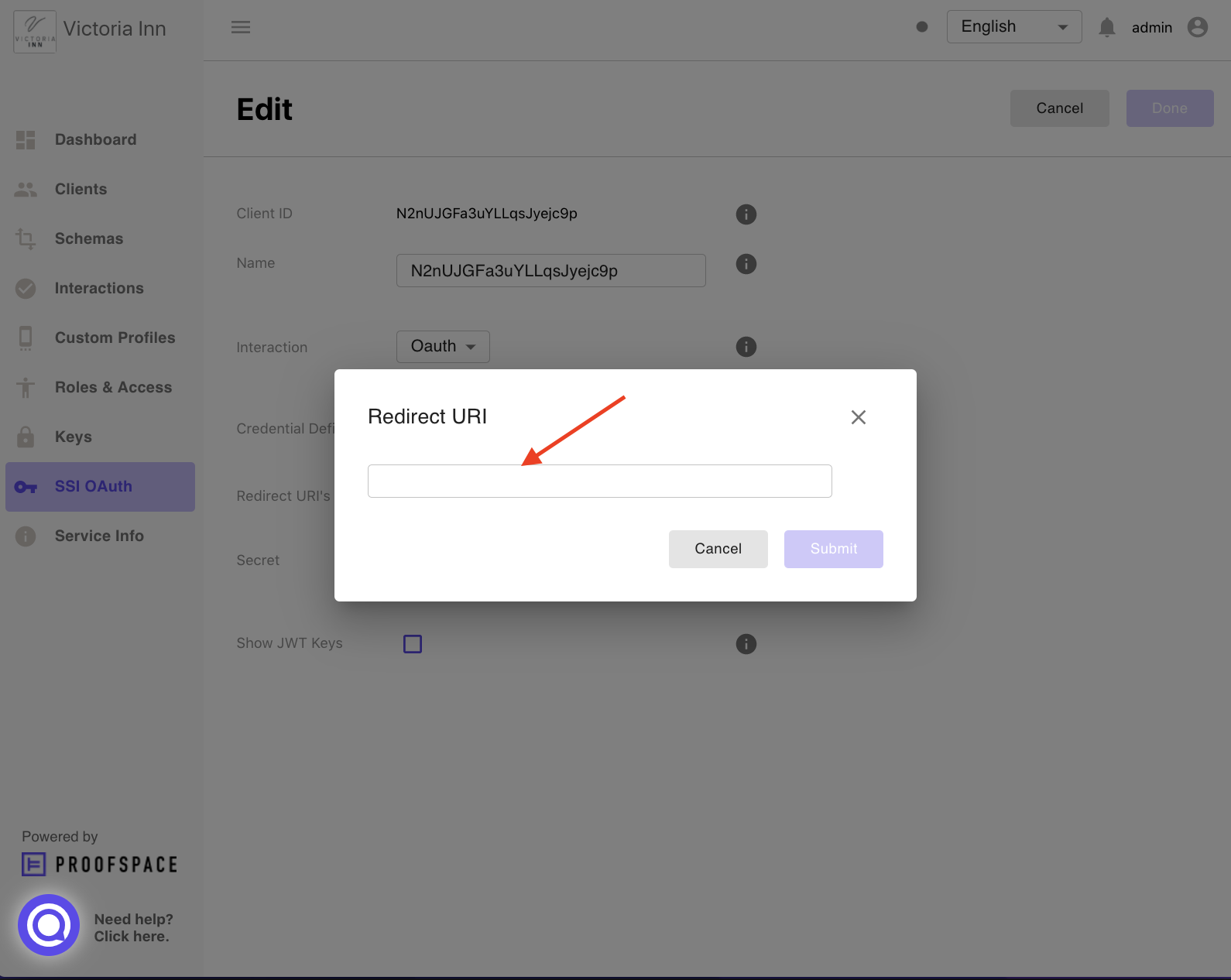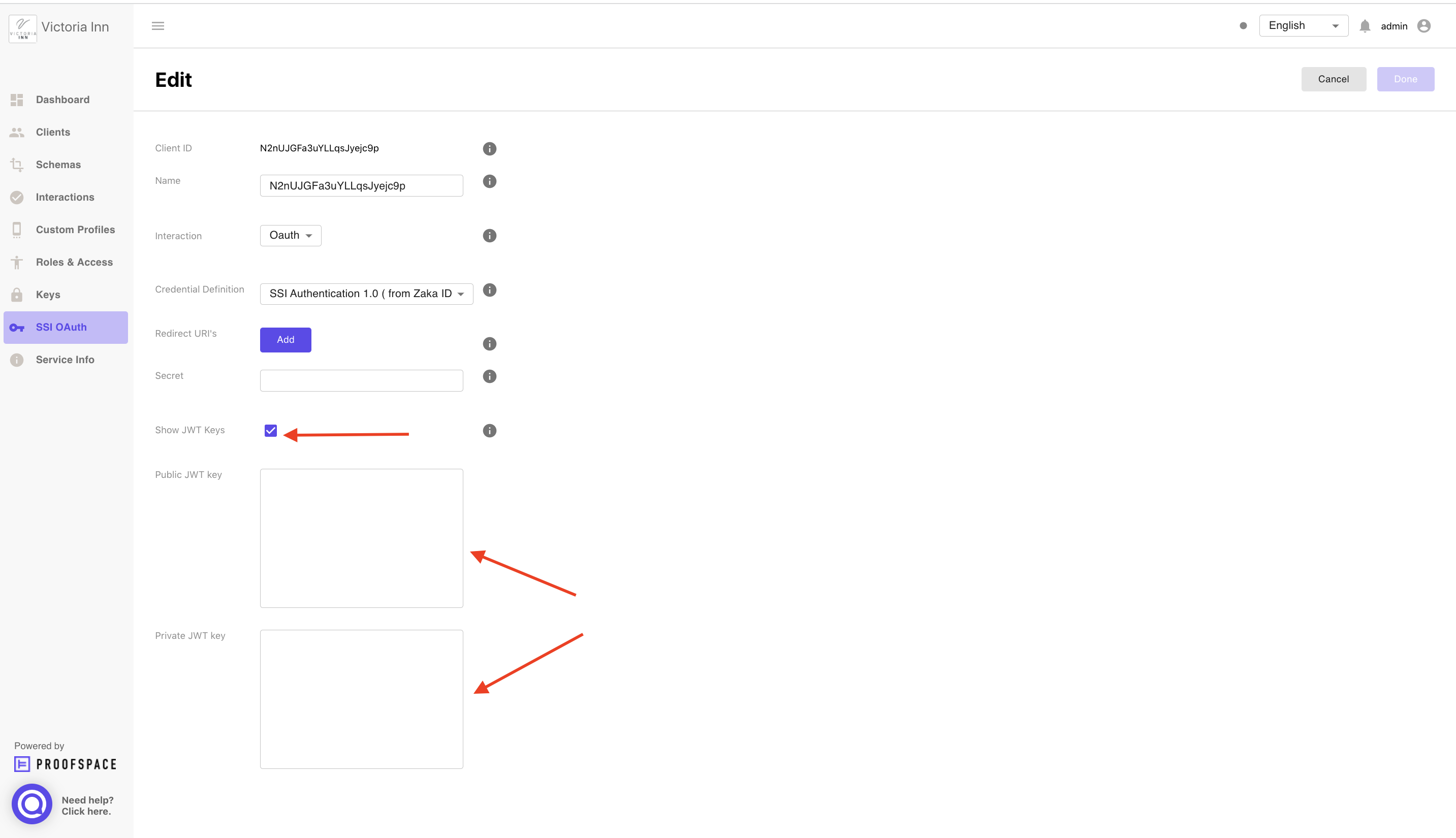OAuth (Open Authorization) is a protocol or set of rules for token-based Internet authorization. OAuth allows the third-party systems to use end-user account information without revealing the user's credentials.
It acts as a mediator, allowing a third-party system access token that authorizes the exchange of certain account information.
SSI OAuth uses a client's credentials that have been set as required to complete an interaction that allows or denies a client access to a third-party service.
For detailed information on the OAuth framework and its extensions that are used in this platform, see https://datatracker.ietf.org/doc/html/rfc6749#section-3.2.1 and https://datatracker.ietf.org/doc/html/rfc8628.
SSI OAuth is a premium ProofSpace feature. To gain access to this feature, please contact ProofSpace support.
Features | Description | Screenshots | Information icons | Information icon screenshots |
|---|---|---|---|---|
Set up OAuth | Click the “SSI OAuth“ tab of the main menu. | 9. To set up SSI OAuth click the “Edit“ button and follow the instructions. | ||
Click the “Edit“ button. The “Edit“ page will appear. |
| |||
In the "Client ID" field, the authorization service identifier (service DID) is stored automatically. | 2. Fill this field with the service DID. | |||
Name | Fill the “Name“ field with the service DID. | 3. Select the interaction from the drop-down list. This list includes interactions that require self-attested credentials pre-filled from QR codes. | ||
Select Interaction | Select the interaction from the drop-down list. This list includes interactions that require self-attested credentials pre-filled from QR codes. | 4. Select a credential definition from the drop-down list (only credential definitions for self-attested credentials pre-filled from QR codes are available). | ||
Select Credential Definition | Select a credential definition from the drop-down list (only credential definitions for self-attested credentials pre-filled from QR codes are available). | |||
6. Enter the allowed URL(s) that will be used to verify the redirected URL from the authorisation call. | ||||
Allowed Redirect URLs | Enter the allowed URL(s) that will be used to verify the redirected URL from authorization call. | 7. | ||
Check the “Show JWT Key“ checkbox to enter and save private and public keys for signing and verification of access tokens. | 8. In the appropriate boxes, save private and public keys for signing and verification of tokens. |
